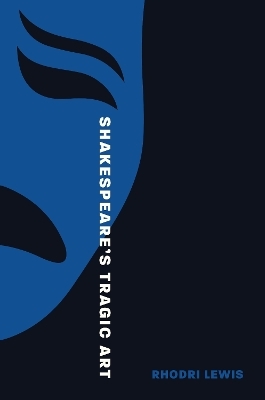
Shakespeare’s Tragic Art
Seiten
2024
Princeton University Press (Verlag)
978-0-691-24669-7 (ISBN)
Princeton University Press (Verlag)
978-0-691-24669-7 (ISBN)
A new account of Shakespearean tragedy as a response to life in an uncertain world
In Shakespeare’s Tragic Art, Rhodri Lewis offers a powerfully original reassessment of tragedy as Shakespeare wrote it—of what drew him toward tragic drama, what makes his tragedies distinctive, and why they matter.
After reconstructing tragic theory and practice as Shakespeare and his contemporaries knew them, Lewis considers in detail each of Shakespeare’s tragedies from Titus Andronicus to Coriolanus. He argues that these plays are a series of experiments whose greatness lies in their author’s nerve-straining determination to represent the experience of living in a world that eludes rational analysis. They explore not just our inability to know ourselves as we would like to, but the compensatory and generally unacknowledged fictions to which we bind ourselves in our hunger for meaning—from the political, philosophical, social, and religious to the racial, sexual, personal, and familial. Lewis’s Shakespeare not only creates tragedies that exceed those written before them. Through his art, he also affirms and invigorates the kinds of knowing that are available to intelligent animals like us.
A major reevaluation of Shakespeare’s tragedies, Shakespeare’s Tragic Art is essential reading for anyone interested in Shakespeare, tragedy, or the capacity of literature to help us navigate the perplexities of the human condition.
In Shakespeare’s Tragic Art, Rhodri Lewis offers a powerfully original reassessment of tragedy as Shakespeare wrote it—of what drew him toward tragic drama, what makes his tragedies distinctive, and why they matter.
After reconstructing tragic theory and practice as Shakespeare and his contemporaries knew them, Lewis considers in detail each of Shakespeare’s tragedies from Titus Andronicus to Coriolanus. He argues that these plays are a series of experiments whose greatness lies in their author’s nerve-straining determination to represent the experience of living in a world that eludes rational analysis. They explore not just our inability to know ourselves as we would like to, but the compensatory and generally unacknowledged fictions to which we bind ourselves in our hunger for meaning—from the political, philosophical, social, and religious to the racial, sexual, personal, and familial. Lewis’s Shakespeare not only creates tragedies that exceed those written before them. Through his art, he also affirms and invigorates the kinds of knowing that are available to intelligent animals like us.
A major reevaluation of Shakespeare’s tragedies, Shakespeare’s Tragic Art is essential reading for anyone interested in Shakespeare, tragedy, or the capacity of literature to help us navigate the perplexities of the human condition.
Rhodri Lewis teaches English at Princeton University. His previous books include Hamlet and the Vision of Darkness (Princeton) and Language, Mind, and Nature: Artificial Languages in England from Bacon to Locke.
| Erscheinungsdatum | 14.09.2024 |
|---|---|
| Zusatzinfo | 18 b/w illus. |
| Verlagsort | New Jersey |
| Sprache | englisch |
| Maße | 156 x 235 mm |
| Themenwelt | Geisteswissenschaften ► Sprach- / Literaturwissenschaft ► Anglistik / Amerikanistik |
| Geisteswissenschaften ► Sprach- / Literaturwissenschaft ► Literaturgeschichte | |
| Geisteswissenschaften ► Sprach- / Literaturwissenschaft ► Literaturwissenschaft | |
| ISBN-10 | 0-691-24669-6 / 0691246696 |
| ISBN-13 | 978-0-691-24669-7 / 9780691246697 |
| Zustand | Neuware |
| Haben Sie eine Frage zum Produkt? |
Mehr entdecken
aus dem Bereich
aus dem Bereich
Poetik eines sozialen Urteils
Buch | Hardcover (2023)
De Gruyter (Verlag)
CHF 83,90
Buch | Softcover (2024)
belleville (Verlag)
CHF 27,95


